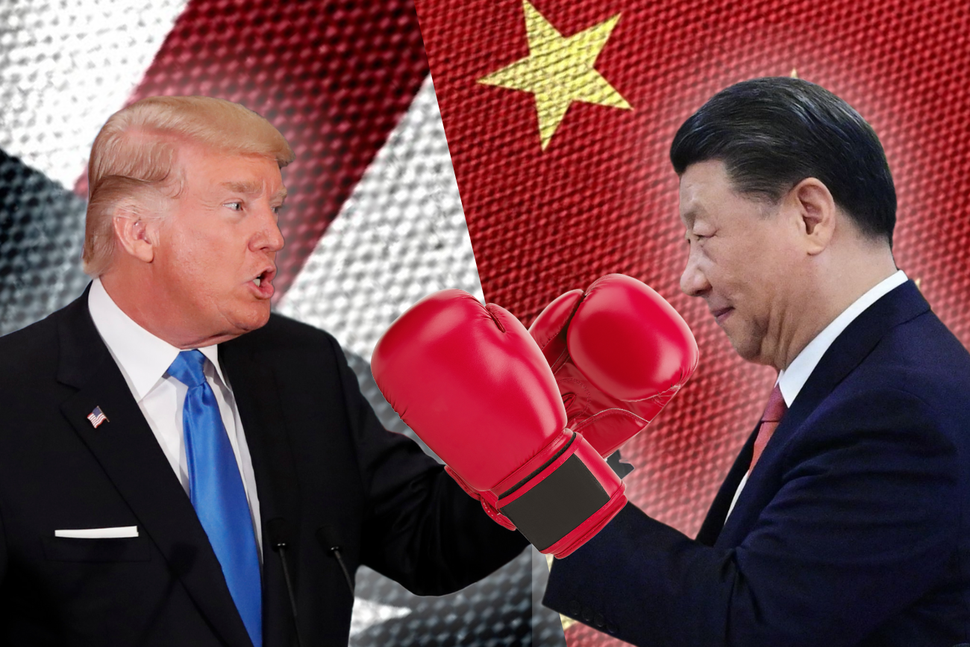The relationship between the United States and China is not necessarily complex, but it has never either been smooth. These two nations at times have worked together, yet at other times, they act more like opposing magnets, two different poles which constantly keep repelling each other. It’s almost like watching the North Pole and South Pole clash every single time. What’s particularly striking is that, despite being rivals, they still manage to cooperate when needed, but this has been a little rare. That uneasy mix of partnership and conflict makes their dynamic bond one of the most closely watched in the world contemporary politics.
One of the biggest ties between the two superpowers is trade. The U.S. imports a vast amount of goods from China, especially electronics and tech related items. China is known for being a massive manufacturing hub and a leader in innovation, which makes many global markets including America depend on it on a very large scale. On the other hand, China also relies on the U.S. particularly for items like soybeans and advanced technology, which U.S. excels in. This interdependence has created a kind of barter system where both countries need each other economically, even as they compete politically and militarily, an unending rivalry since centuries.
The key reason for their tensions lies in political ideology. The U.S. believes strongly in democracy and freedom, where citizens have the right to elect their leaders and hold them accountable. China, however, operates under a communist system, where the government maintains strict control over nearly every aspect of life. There is little room for public choice, and economic and social planning are centrally managed. These contrasting systems often lead to global disagreements. The U.S. promotes democratic values worldwide, while China maintains that a strong, centralized government creates balance and avoids class divisions. As communist manifesto, “Das Capital” had stated of having an economy which benefits every class.
This ideological battle delve deep into other areas as well. Both countries have powerful militaries and are constantly measuring each other’s strength. One hotspot is the South China Sea, where territorial claims and military presence continue to stir the ongoing conflicts. In technology, too, the rivalry is intense. The U.S. has accused China of using advanced tech not just for development, but also for surveillance. These growing concerns have only widened the rift between the two powers, which has kept worsening with each and every passing day.
Now, in the middle of all this, the question arises: What happens if Donald Trump, known for his strong anti-China stance, backs down on Chinese tariffs? Will this affect his credibility?
The answer is 1000% Yesss, possibly in a major way.
Donald Trump built much of his political identity around being strong, tough, and unwilling to compromise, especially on issues like China. His administration was marked by heavy tariffs on Chinese goods as part of a trade war strategy, aiming to reduce dependence on China and protect American industries. His supporters saw this as a bold move—something that aligned with his “America First” slogan. But the entire campaign would go in vain if Trump loses his credibility.
However, if Trump suddenly backs down and softens or removes those tariffs, it could send the opposite message. It may appear as though he’s bending under pressure, which contradicts the firm image he had earlier framed for himself. For many voters, especially in a presidential system like the U.S., the expectation is that leaders will stand by the promises they made during their campaigns. Changing direction too quickly can be seen as a sign of weakness or inconsistency.
Supporters may feel betrayed or confused. If a leader who once said he would stand firm against China is now backing away, people may begin to wonder: Is Trump being pressured? Is China now strong enough to influence U.S. economic decisions? These questions open the door for Trump’s opponents to attack his reliability, arguing that a leader who can’t hold his ground doesn’t deserve to lead at all. This downfall would leave Trump devasted completely.
That said, there could be some positive economic effects of lowering or removing tariffs. Without these extra taxes, Chinese goods could become cheaper, making everyday items more affordable for American consumers. It could help reduce inflation, boost the economy, and even ease diplomatic tensions between the two nations. From a practical viewpoint, it might seem like a smart move. But now Trump has to decide whether he’s going to look at these little positive points or would emphasis more on his staunch image. Politically analysing, the damage could be much greater.
Backing down may cost Trump not only voter trust but also his image on the global stage. His brand has always been about being tough and not backing down, especially in front of global rivals. If he reverses his stance, it might look like he’s giving China the upper hand. This could harm his campaign in future elections and hurt his standing in international politics.
In conclusion, while stepping back on Chinese tariffs might bring some short-term economic relief, the long-term effects on Trump’s image and credibility could be severe. He risks losing the very foundation of his political identity: strength, consistency, and independence. In the eyes of both his supporters and the world, it may appear that Trump has bowed to pressure, allowing China to gain the upper hand.
Even in global market it could lead to a huge lose for Trump.
Article by Sruti Bhaumik

